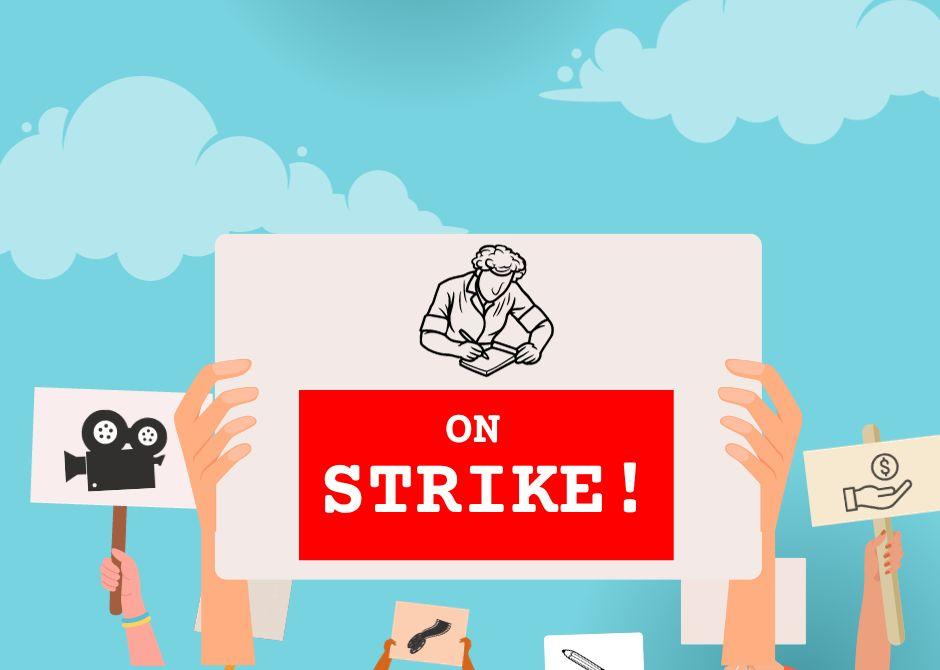The Writers Guild of America (WGA), an American labor union representing writers in film, television and media, officially went on strike against the Alliance of Motion Picture and Television Producers (AMPTP), following their failure to reach an agreement for fair compensation May 2. The Screen Actors Guild American Federation of Television and Radio Artists (SAG-AFTRA), another American labor union, joined the strike July 14. These events have caused a complete shutdown of film and television production, development, editing and casting. Until a settlement is reached, this large division between writers and production companies has brought the entertainment industry to a standstill.
With studios pumping out media like there’s no tomorrow, job security for writers should, in theory, be extremely stable. Unfortunately, that hasn’t been the case for some time. Writers used to be guaranteed fair compensation through residuals and a “paid-by-episode” structure. Residuals are payments received after a show airs, for each time it runs on TV or when a consumer buys the content in another form. However, residuals for streaming are significantly lower than residuals from network and cable shows. Additionally, network and cable series often have 22+ episodes per season, whereas streaming series usually have closer to 8-13 episodes.
The problem is that streaming is a relatively new phenomenon, and it does not fall under the umbrella of traditional network and cable TV, so studios are no longer contractually obligated to pay their writers fairly. It comes as no surprise that the AMPTP has taken advantage of this loophole, exploiting writers and others working in the film industry.
As a film student most interested in the writing aspect of production, this strike has really made me reflect on the career I am choosing to pursue. The bottom line is that writers don’t get as much credit as directors and actors, yet the scripts they create are the core foundation of all film and TV content. If they aren’t even getting paid a livable wage, then something needs to change. I support the WGA strike completely, and if anything, I think their demands are too low. Writers are asking for less than 2% of all Hollywood profits, an egregiously inconsequential amount, all things considered.
The last WGA strike lasted 100 days in 2007-08. The effects of this strike were staggering, with wildly successful shows such as “Friday Night Lights” and “Pushing Daisies” losing substantial momentum and never fully recovering from the hiatus. I believe we’re going to see a similar ripple effect from the strike this time around. Shows with cult followings like “Euphoria” and “The Last of Us” might have the same fate as those that were impacted by the strike fifteen years ago. As devastating as it would be to see such poignant shows fade into obscurity, I think it’s a small price to pay for writers’ working rights and wages.
Strikes are effective because they completely stop the flow of commerce. In an economy where CEOs and businesses frequently put profits above people, bringing profits to a complete halt is sometimes the only way to spark change, which is exactly what the WGA is doing now.




































